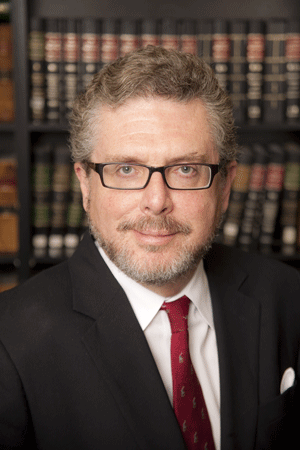
Foreign judgments against an Ontario lawyer will be considered in his discipline proceeding at the Law Society of Upper Canada, the Law Society Tribunal has found.
Jussi Kivisto, who is licensed to practise law in Ontario, was disbarred from the bars of both Florida and Illinois for charging “excessive fees” in estate matters. A Florida default judgment against Kivisto in particular brings his conduct and behaviour into question. The judgment describes Kivisto, who refused to participate in the Florida proceedings, as “just plain mean, nasty, and rude.”
“Through a series of acts, as set forth hereinafter, respondent has shown and continues to show a willful, deliberate, bad faith and contumacious disregard to the order of the court through his own words and through the nature of these proceedings,” the default Florida judgment reads. “The acts he has voluntarily committed to perpetrate on the court were solely designed to delay, confuse, and somehow bring to a halt the disciplinary proceeding.”
The Law Society of Upper Canada now wants to rely on those findings as part of its case against Kivisto for conduct unbecoming a lawyer. The three-person law society tribunal panel said this is the first time the question of whether foreign judgments could be used to prevent a lawyer from re-litigating issues or challenging facts was brought before it.
“The purpose for which the parties seek to have this panel recognize the judgments is not to enforce the judgments but rather to have this panel give them preclusive effect, prevent re-litigation, and accept the facts and findings giving rise to those judgments,” said the tribunal, which was chaired by John Callaghan. “In this regard, this case is the first time the issue of recognition of a foreign judgment has been fully presented in a Law Society of Upper Canada discipline proceeding.”
The tribunal went on to unanimously conclude that the American rulings were fair game, given the findings followed a process considered fair by Canadian standards. It rejected Kivisto’s argument that the judgments were a result of a fraudulent process.
“Provided that the process followed in a foreign disbarment proceeding meets the requirements for recognition and enforcement in Canada, there is no principled reason why a law society hearing panel ought not to be able to recognize foreign discipline orders from Florida and Illinois,” the tribunal said. “Each of those jurisdictions has a process that allows lawyers to know the case they must meet, permits them to call evidence, and allows for an adjudication before a neutral adjudicator.”
Still, the tribunal said it has discretion to determine what weight, if any, will be given to the specific findings the law society wants to rely upon. “Obviously, the weight will depend upon the use to be made of any fact or finding and the nexus of that fact or finding to the matters in issue in this proceeding,” the panel said. “These issues will be determined on the hearing of the merits of this matter.”
Kivisto did not respond to an e-mail request for comments, and he could not be reached at a number the Florida bar lists for him.
James Morton, civil litigator at Morton Karrass LLP, often represents lawyers before the Law Society Tribunal. He says in this case the tribunal got it right.
“Certainly, it’s appropriate to look at the conduct of a lawyer outside of the jurisdiction because if somebody is doing something utterly terrible in another jurisdiction, it makes sense to ensure that that kind of conduct doesn’t repeat itself in Ontario,” Morton says.
In the civil context, Morton says judgment obtained in Florida would generally be binding in Ontario unless there’s evidence that the judgment was obtained improperly. “I would say that that should be the test for law society matters as well,” he adds.










